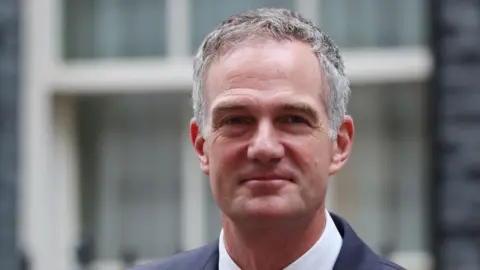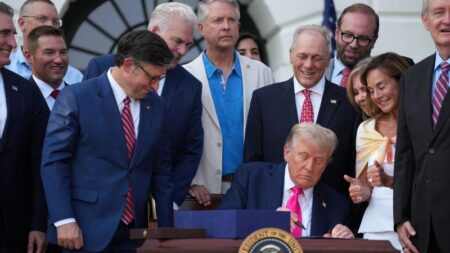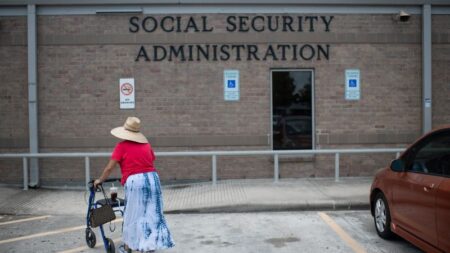In a recent announcement, the UK Science and Technology Secretary, Peter Kyle, has made a pivotal directive to the Alan Turing Institute, the nation’s primary institution dedicated to artificial intelligence (AI) research. In a formal letter, Kyle emphasized the need for the Turing Institute to refocus its efforts primarily on defence and security matters. This request aligns with the government’s broader strategic priorities, particularly as geopolitical tensions escalate and technological advancements create new avenues for both innovation and conflict.
Kyle expressed that enhancing the UK’s AI capabilities is “critical” to national security. He urged the institute, named after the pioneering computer scientist and mathematician Alan Turing, to integrate this renewed focus into its core activities moving forward. The Secretary also proposed significant changes in the institute’s leadership to reflect and accommodate its recalibrated mission. He insisted that the government’s continued financial support for the institute would hinge on its ability to deliver on this newly established vision.
In response to Kyle’s letter, a spokesperson for the Alan Turing Institute welcomed the recognition of its critical role in national security. They affirmed their commitment to work closely with the government to address its priorities and acknowledged that the institute’s current focus includes high-impact initiatives that enhance the UK’s sovereign AI capabilities, particularly in defence. Reports have indicated this move follows Prime Minister Sir Keir Starmer’s announcement about escalating UK defence spending to 5% of national income by the year 2035, alongside increased military investments in AI technologies.
The call for the Turing Institute to shift its focus is particularly interesting given the outcomes of a recent review of UK defence, which highlighted the urgent need for greater integration of autonomy and artificial intelligence within military frameworks. Established initially as the National Institute for Data Science in 2015, the Turing Institute expanded its scope to include AI in 2017 and has received substantial public funding, including a notable £100 million grant from the previous Conservative government.
The significance of this strategic pivot for the Turing Institute cannot be underestimated. Historically, the institute’s work has revolved around various critical areas, including environmental sustainability, health, and national security. More recently, however, it has placed considerable emphasis on ethical AI and responsible use of technology. The ministry’s letter indicates a desire for a broader commitment to defence, marking a significant transformation in the institute’s direction.
In light of recent challenges, the Turing Institute finds itself at a crossroads. There has been a palpable turbulence within its ranks, as evidenced by a review conducted last year by UK Research and Innovation, which pointed out the need for an evolution in governance and leadership. A notable incident occurred at the end of 2024, when a group of 93 staff members voiced their lack of confidence in the institute’s leadership, prompting calls for modernisation and a more focused AI agenda.
Kyle’s correspondence to Dr. Douglas Gurr, the institute’s chairman, further underlined the necessity for such transformation. He emphasized the opportunity presented for what he termed “Turing 2.0” while advocating for reforms that would prioritize defence capabilities, thus melding AI research with strategic national imperatives.
Yet the incorporation of AI into defence presents its own complexities. The powerful implications of AI in military applications have not escaped scrutiny, especially following Google’s controversial decision earlier in the year to revoke its self-imposed ban on AI weapons development. In contrast, the UK military is already exploring AI-integrated systems to improve operational efficacy. For instance, the Defence Review suggested utilising uncrewed and autonomous systems as an asset within the UK’s conventional military force over the next five years.
Industry perspectives, such as those from Palantir UK, indicate a supportive stance towards the government’s push for integrating AI into national defence strategies. Palantir’s UK head, Louis Mosley, reflected on the urgent need for the nation to advance its capabilities in light of the evolving geopolitical landscape. He noted the ongoing AI arms race and underscored the necessity of leveraging resources to maintain an edge for the sake of national security.
In conclusion, the directive from Peter Kyle to the Alan Turing Institute marks a significant change in the institution’s operational focus and reflects a broader trend as government bodies align AI research with national defence strategies. As the landscape of international relations continues to evolve, the decisions made today will undoubtedly shape the future trajectory of AI applications in security and military contexts.











